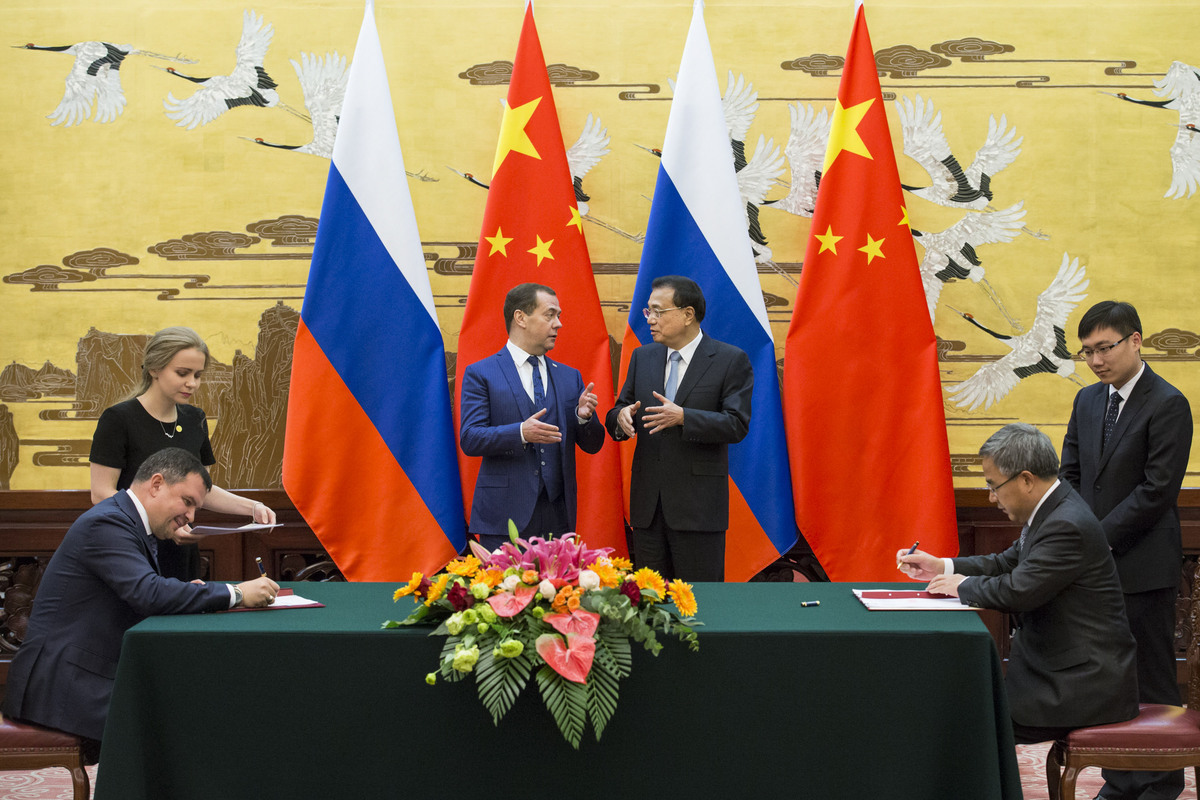Stronger Sino-Russian ties can help stabilize global economy: China Daily editorial


The increasing global uncertainties should prompt countries such as China and Russia to strengthen their relationship, because by so doing they would not only facilitate their respective development but also act as a bulwark against rising unilateralism and trade protectionism.
And Premier Li Keqiang's visit to Russia from Monday to Wednesday is ideally suited to fulfill that purpose.
The fact that this year marks the 70th anniversary of the establishment of diplomatic relations between Moscow and Beijing makes Li's visit especially important. Just as Vice Foreign Minister Le Yucheng said, the seven-decade-old Beijing-Moscow ties have become increasingly mature, stable and resilient, given that their new type of major-country relationship is based on mutual trust and a high level of coordination.
Good neighborliness and win-win partnership are reflected in the growth of trade between the two countries, which increased to more than $100 billion last year from just $8 billion in 2000. The growth momentum has continued this year, with the trade volume reaching $70.59 billion in the first eight months of this year, an increase of 4.5 percent year-on-year.
Cooperation in the fields of agriculture, finance, science and technology, and cross-border e-commerce has also maintained a good growth momentum. Which makes the goal set by the two countries' top leaders that bilateral trade would reach $200 billion by 2024 a highly achievable target. For that to happen, however, the two sides have to tap into the potential of bilateral cooperation in new areas such as innovation.
Accordingly, at the 24th regular meeting between the two countries' heads of government, Premier Li and Russian Prime Minister Dmitry Medvedev will discuss how to strengthen cooperation in such diverse fields as energy, aerospace, agriculture, science and technology, and innovation. Better alignment of the China-proposed Belt and Road Initiative and Russia's Eurasian Economic Union could also figure in the talks.
More important, Li and Medvedev will also discuss in detail how China and Russia can work together to improve global governance and promote multilateralism and free trade, so as to build an inclusive world economy — at a time when Washington's "America first" policy and the wave of unilateralism and protectionism it has triggered are weakening the multilateral trade system, which is at the core of economic globalization.
Therefore, China and Russia should maintain good neighborliness and take measures to smoothen the development of bilateral ties, in order to neutralize the effects of unilateralism and protectionism on the global economy and add to the political and economic stability of the entire world.


































